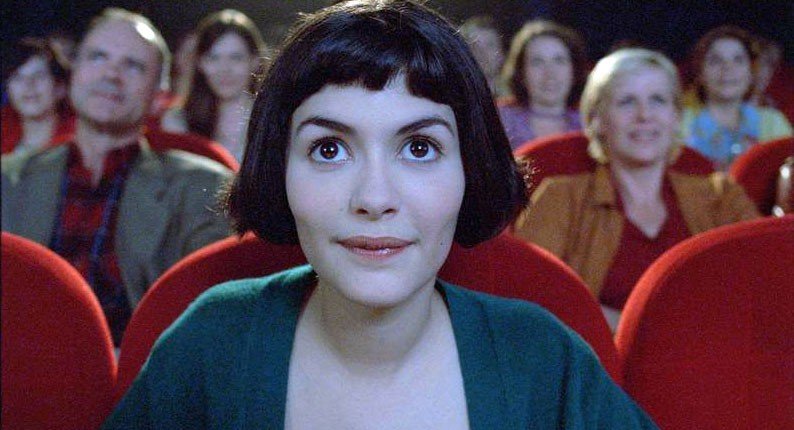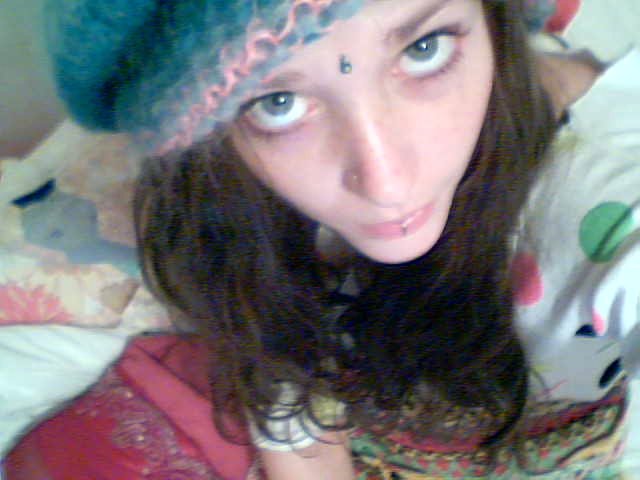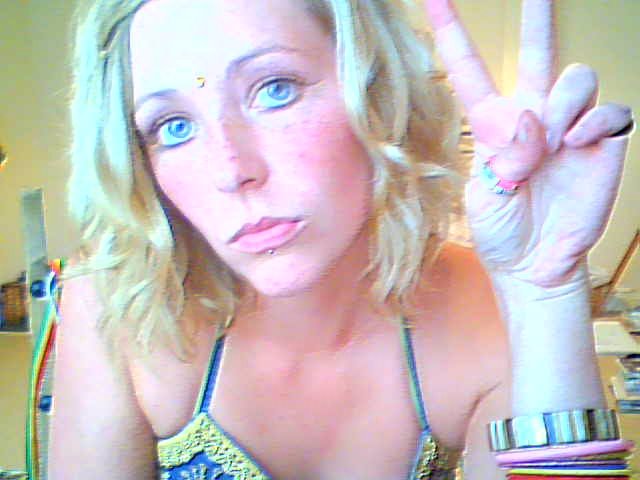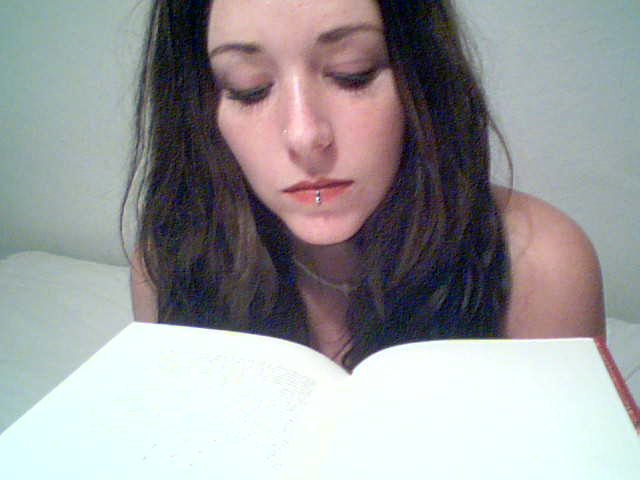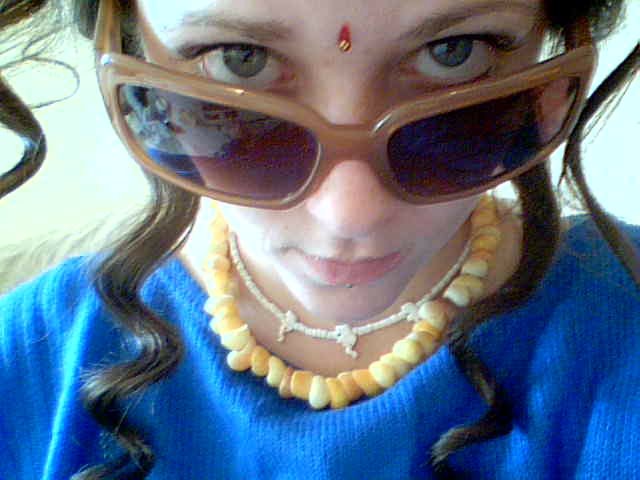Divergent // my experience as an autistic woman
Sometimes I think that sharing stuff about my neurodivergence will quickly make me feel less than.....
I’m fairly quiet about it, unless I get a wave of confidence and/ or it comes up in conversation. I have had a mixed response to my disclosure. Some have been very positive and others not so much.
The most common replies are, ‘well everyones a little autistic anyway’ or ‘you must be high functioning because you don’t look or act autistic’. I still haven’t figured out how to respond to these type of statements. Whilst saying someone doesn’t appear autistic may be meant as a complement, it implies that there is something wrong with being autistic or that because you can’t see the struggle then it is not there. It can be pretty awkward and if you don’t have the words or energy to articulate an understanding then you are left feeling othered.
The good responses are inquisitive without fear or supportive with a touch of understanding. Like when I had to start doing the school run at a new primary and my aniexty levels were off the charts, a school mum noticed I was a bit of a deer in headlights and when I explained that I was autistic and just needed to settle into the new rountie to chill out bit, she replied with ‘I understand and if you want to, you can meet me at the school gates this week we can go in together if that helps?’
Kindness and compassion really does make the world a happier place for everyone and opens doors commonly closed to marginalised people.
If I analyse the negative responses, I understand it can be a bit scary when someone points out they have a hidden disability. Particularly one that is stigmatised. But I promise its not that bad really!
Knowing that Im Autistic has changed my life for the better in so many ways. This awareness, compassion and understanding has giving me so much. It saddens me that so many have no idea what it means to be on the spectrum. And that this lack of understanding results in so much hurt for those unidentified, loud and proud or even quietly at home struggling with no support.
I decided that writing about my experience was the best way for me to share some hopefully useful information for those that may need it, despite the fact that I’m also very dyslexic and that this type of sharing makes me feel pretty exposed.
If what I share here is helpful to just one person then that will be enough, because like a ripple in water the understanding will spread.
I aim to give you a little narrative about my background and how I came to find out I was autistic. After that I will then explain how it presents using examples and a breakdown of my traits.
Since I can remember, I have experienced a kind of overwhelm that creeps in and freaks me out. For most of my life I thought perhaps it was anxiety and someday I would hopefully overcome it. I naturally learnt to present calm, despite the inner concern. I was a day dreamy kinda gal, enjoying my imagination and dragging my dolls changing table to the bottom of the garden to make a snails racing zone. By my early teens I went to the sleep overs, performed in the school plays, kissed the boys and smiled whilst doing it. But there was a physical reaction that kept happening within. This unsettling feeling was always lingering and flared up in the social situations I found myself in. It often made me feel sicky and unwell. I never really understood it, I have mostly hidden it and at times I thought to myself perhaps I had overcome whatever it was.
When the hormones kicked in, I decided to identify as arty...you know the introverted, sensitive type that you see in characters like Tim Burtons ‘Wednesday’. I put my quirky behaviours down as being a trait of my creative mind and found a way to survive the world through my dedication to art, avoidance of ‘townies’ and my love of the little things...just like Amelia! If you know then you know. (I have watched that film 100 times)
I also really related to Daryl Hannah in Splash and Zooey Deschanel in 500 days of summer. Im now aware of the term “Manic Pixie Dream girl” and unfortunately I fit that stereotype through out my teens and my 20’s.
‘Autism’ wasn’t in my vocabulary. I went to primary schools in Hong Kong, Germany and the UK because my dad was in the army. I then went to a secondary school during the late 90’s, in small seaside town in Devon. There was no way that I was going to randomly recognise my own neurodivergence. My school was also never going to see me through a lens in which, a neurodiverse mind would be included in their mainstream model of education. Instead I was understood as arty, felt like I was always on the fringes of my friendship groups and was bullied by a group of girls I quietly termed ‘The Kapper Slappers’. Anyways by year 9 it was clear I wasn’t doing great in the main subjects and the staff had identified I was ‘dyslexic’. As a result, I was made to play scrabble in the ‘special kids room’ and that was all the support on offer. Inevitably I was pushed to believe I was ‘different’ (not in the wonderful way, even though I thought I was pretty cool and had friends that seemed to enjoy my quirky style). My saving grace were the creatives subjects. I strived in these classes and felt safe and inspired.
I don’t blame anyone at all for not seeing a disability that at the time was mainly identified in young boys that had an interest in trains!...there just wasn’t the understanding needed and I’m ok with that.
That being said, Im not sure i’m ok with the fact that even in today’s society we still has a long way to go before the western world becomes a place in which proper inclusion is normalised in our overcrowded, loud and fast moving, little box of capitalism.
These days i’m still the ‘quirky arty type’ but I am also a wife and a mother, someone who has traveled, someone that has a degree, a teaching qualification, a masters of the arts, and years of been a successful lecturer. By most people standards I have done very well for myself and achieved a lot.
Yes I did do all of the above and much more, but that creepy internal feeling was always present. I managed to find work arounds to most things that overwhelmed me or I just did it scared. I don’t mean I was just a little nervous and got over it after a nice bath and a good cup of tea!
When I flew to Thailand alone (to meet my sister for 6 weeks of travel) I was a more than a nervous mess as I boarded the plane. I was shaking with fear and physically sick. This photo was taken just hours after I landed and I was bricking it.
Living with this amount of aniexty is hard especially when you don’t know the cause of it. It takes it toll on your mental and physical health. Over the years I became a master of hiding it. But it doesn’t just leave your body and all the experiences add up to create a post traumatic stress response which you then have to live with.
Like Daryl Hannah in Splash, I was just mermaiding my way through most of it. At times I felt extremely exhausted from what I assumed I should to be enjoying. This confused me because I was doing so well according to popular belief and construct. I would privately ask myself, why are you struggling so much when you should be elated? I mainly came to the conclusion that everyone has stuff they are dealing with and you just have to push through and one day you will overcome your own.
At 33 I had a baby. When my son was born, mothering felt natural to me. Breastfeeding, co- sleeping and permanently attached to this freaky little bundle I birthed in water! But again that unexplained feeling was still there. I learnt whether I was teaching or taking time off to parent, if I create a routine, I am my most comfortable and happy. Within that routine, being creative is a must!
The new role was hard but his chunky cheeks and loving eyes saw me through the sleepless nights.
When he started nursery I thought I could finally indulge in some creative space and return to my former life as an Art Lecturer. I did for a while but it felt disjointed so decided to instead teach adult evening classes because they didn’t require as much of me.
This choice meant I had some free time to develop my own ceramic practice and start to see myself in a new way!
At nursery it became noticeable that my son didn’t really speak much, which was strange because at home he was quite chatty. He also had a fear of the toilets, that was random too....it turned out to be a fear of loud noises...it’s was the bloody hand dryer, not the loo! Anyway, the lovely staff decided to seek an outside professional’s opinion on his ‘Atypical’ behaviour.
The conclusion was unclear and I was advised to send him to a speech therapist, which I did and she said ‘nope all good’, so we continued on. He became a little more chatty over a next few years but the word autism was something I began googling. At the same time my much younger sister was also struggling in her educational setting and was diagnosed with ‘Asperger’s’. My research into the spectrum was now in full swing.
When my son started school, his quiet nature remained and a sensitivity to loud noises extended beyond the hand dryer. For the first 2 years of infants, the school run became a place he released his tears and he would tell me that the noise and the unknown were upsetting him...as in, he didn’t know what they would be doing that morning, what he would be having for lunch, if he was meeting all the rules and who he would be sitting with that day.
These seemingly little everyday factors were making his tiny heart beat so fast I could almost hear it and despite his bravery to turn up everyday and give his best, it really drained his energy and caused him a lot of anxiety. I mentioned the ‘A’ word a few times to his teachers who all agreed that he was ‘just sensitive’ and because they did such a good job with supporting his needs, we just cracked on and found a way. He is in primary now, still ‘just sensitive’ but top of the class in his academic work, so of course it’s nothing to worry about, right?
I realised, I understood my sons anxiety, he was experiencing that creepy inner feeling that I have always known. Through trying to ease his discomfort I became very aware of how much I had been disregarding my own! I also realised the phrase ‘grin and bare it’ had become my fucking mantra and that for most of my life, I had been struggling through pretty intolerable internal distress because I needed to, to survive, to fit in and to do well. And worst of all I was also teaching my son to push down his feelings and chant the same prescribed mantra. Thankfully I have now learnt that yes my mantra has been necessary in order to live a neurotypical existence as a very unaware masked neurodivergent being. But with a new understanding of neurodiversity, our mantra has now changed to ‘listen to your inner voice and just do what makes you happy’. This amazing change in viewpoint was only possible thanks to all the research I had been doing and an access to the new vocabulary that came with it.
When I got my diagnosis, my mind was blown and I finally understood that the annoying creepy feeling I had been struggling with my whole life was actually autism!
Most importantly I have also learnt that you don’t have to struggle in silence and if you do, it inevitably leads to burn out! The lack of awareness and the need to survive, meant I have endured a number of burn outs through out my life so far, that I had just explained away to myself as bog standard stress, trauma response or poor health. I haven’t gone into great detail about that as this is a long journal entry as it is and to do so would mean it would become a book. I’m not ready to pathologize my entire existence quite yet.
So after a few years of intense research, I uncovered a game changing fact about myself. I got the confirmation I desperately needed through a diagnosis and I’m still going through the bewilderment, re- learning, unmasking and validating process of understanding my true self in all its glory and gore.
So what does being a late discovered autistic woman look like...externally it looks pretty similar to every everyone else. BUT and this is a big but, autism is a hidden disability, I can see it now and unpack the traumas it has caused me.
Now you know little about how I got my understanding, I want to break it down a little, so you can gain some insight and either relate or simply appreciate.
No two autistic people look or act the same. Some may share behaviours or mannerisms but there is a spectrum and it’s not a straight linear line where you can pin point whether you are more or less autistic than the next person.
It required quite a lot of understanding and knowledge to recognise the traits but when you do it provides you with the opportunity to manage the bad stuff and prioritise the good!
The key struggles and strengths can be acknowledged and having an understanding of them is life changing for those experiencing them.
Next up I have highlighted and tried to give examples of my struggles and strengths to shed light on it for those of you that have questions, maybe for yourself or perhaps a loved one.
My autistic struggles:
Sensory differences: sound, sight, smell, taste and touch are the 5 senses we use to experience the world through. I am extra sensitive to these guys and too much of one or more of these things, can really overwhelm me and cause a rush of panic to race through my body (that creepy feeling I mentioned earlier!). Without a knowledge on sensory differences, it’s impossible to understand why you feel funky but of course you still do!
If I go to a restaurant and the noise of people chatting is to loud I can start to feel really uncomfortable, or if the overall smell is quite strong, I may feel a bit sicky. On top of this, if one sense is kicking off I become hyperaware of them all and weird stuff starts to happen, like if it’s to noisy, eating becomes an issue, because my sense of taste will now be heightened and the smell and texture of any food will now make me gag. It’s very annoying...and embarrassing! I have fought against it my whole life and endured or avoided many a meal out, hiding my discomfort because I didn’t understand it and thought people would judge me it I said I was feeling weird. I believed it was a random anxiety issue but it isn’t and shouldn’t be treated that way. I have questioned if I had some sort of random eating disorder but that didn’t make sense because I don’t have an eating disorder. Not understanding you have sensory differences can be very confusing and is quite harmful to all the people out there suffering without a clue as to why. When your sensory system is under attack, every meal becomes a bush tucker trail without the luxury of screaming ‘Im an autisticccc, get me out of hereeeee’.
Masking: This is something I have done all my life unconsciously and consciously. Basically to hid, survive and thrive in the world. I learnt from a young age to act out certain behaviours and suppress my inner thoughts and feelings. I did this to fit in and be more like the people around me, not as a calculated deception but to cope in situations that felt unbearably uncomfortable. It can be seen as a useful social tool but masking also comes at the cost of a loss of self-identity, feeling isolated and becoming completely exhausted after social events. Being the arty type has always helped me fit in as a misfit. An extreme aesthetic is actually quite a good way to not be seen at all, however its not so great to know that your true self is invisible to those around you.
I can go out with a group of people and inside I may be completely overwhelmed, massively overthinking and very stressed by it all. Outwardly I am engaging in a conversation, have a confidence outfit on and get away with coming across quirky.
Underneath the surface I have to really concentrate on things like peoples body language, facial expression and tone. I also have to work really hard to not pay attention to all the surrounding noises (I always thought this was a dyslexic thing and have apologised when I haven’t been able to stay focused in a chat). I sometimes parrot back small talk, as a way to get through an evening and not highlight myself in a way that doesn’t feel good. When I get home and the mask falls off and I am completely shattered. It can take hours to days for my energy levels to bounce back to my normal (not many see this part). I now call it the social hangover and previously never understood why I felt so rubbish after a gathering, especially when I wasn’t even drinking and everyone else agreed it was an awesome night!
Need for routine and repetition: I am most content and happy when I have a lovely little routine going and can flow through my day like an experienced yogi doing a sun salutation. Gliding through my tasks and activities without much thought is pure bless. If I also include things that involve patterns and repetition, I’m overjoyed and glow like a fire fly at night. This is why I love pottery, its endless repetitive tasks regulate my nervous system and it’s addictive to feel this good. The problem lays in stepping out of this joy!
Going on holiday, changing jobs, having a baby, moving house, living through a pandemic and even little changes like my fav mascara being discontinued, can all make me feel a certain type of yuk. Confused, disjointed and spiky, sometimes leading to periods of burn out and often left very overwhelmed and in need to a rest. Outwardly these kind of responses can be viewed as an unrelatable and unnecessary overreaction. I can’t tell you the amount of times I have heard the statement ‘don’t be silly Faye’. Getting on those flights to a week in supposed paradise feels like SAS training at the highest level. I have to be a proper warrior and face these battles on the frontline. It’s takes a lot, more than I can ever really express and it doesn’t feel silly to me at all!
Alexithymia:
This is a big one but I will try and keep it as short as I can. Alexithymia is described as an inability to understand your own emotions and the emotions of others. I now believe this trait is the main reason I went so long not understanding I was autistic.
I like to think I am a pretty good judge of character but I base my decision on someone through assessing their vibe (energy/ or aura), I decide if I like a person purely based on how it feels to be around them.
When it comes to reading emotions I am very capable of coming to a conclusion but can sometimes struggle with this in the present moment. It takes time, a lot of analytical overthinking and I'm never sure if I can trust myself. I will often rehash things with people I trust, to ease my confusion even about the tone in a simple text message.
On a really bad day, I just can’t work out what I’m feeling. I can wake up and sense a discomfort in my body and I’m like okay is this anxiety?, am I nervous about something or am I just hungry because I haven’t eaten since 4 yesterday. And ohhh my belly hurts, am I ill? I can’t work it out, so I say to myself ‘oh well’ and just get up and continue on unsure and confused. A few days later I will be able to look back and say to myself ohhh I was hungry because it all felt better after lunch and/or aha I was not just randomly fearing the day, I was really nervous about that thing that’s what it was!
When it comes to others, I can quite happily have one to one conversations. My busy brain naturally works overtime to figure out if the vibe is good or bad. However I normally need follow up time to mentally relive most on my conversations. As you can imagine it’s very draining that nearly every interaction I have requires a lot of energy to decode before I can settle and let it go. It’s particularly hard in group situations where the conversation bounces from person to person.
Say I’m at a bbq with a mixed group of people, some I may know well and others not so much. A conversation about meat eaters vs vegetations is now in full flow and I look from face to face to catch the vibes and work out if I like the energy and if I have something to add. (I’m a veggie) I’m in overdrive at this point, my head and heartbeat start working double time. I’m overheating and the desire to express my hearts true love for organic is at bursting point. I may come across cool as a homegrown cucumber (I’m never sure) and manage to waffle off some stuff about the carcinogenic properties of antibiotics in mass farmed animals. The reality is I have no idea if what I say is being well received and the internal desperation to know, understand, trust and just be normal, eats me up inside like a kid with a happy meal. I can only handle a few hours of this kinda situation, sometimes its great and I will be all buzzy and pleased with myself for surviving but other times its way to much and I need to lay down, overthink and move on.
Emotional regulation:
Emotional regulation is a proper issue and as a menstruating woman it can get real complex with PMDD and hormones to consider. My main bug bare is the amount I feel. It’s termed hyper-empathy and basically when it comes to big feelings, I feel my own and the emotions of others with an unsettling intensity.
If I go to the cinema, theatre, kids school concert or anything like that, I will be in bits before I even enter the room and with the mood changing dim of the lights, I will be overcome with uncontrollable tears. It’s the energy in the room or the thought of how much it means to someone and I'm an embarrassing mess within minutes. I can not watch ‘Britain’s Got Talent’ without looking like I have been through a trauma by the first ad break and I definitely can not hear about someones inner troubles without taking on their pain, grief or heartache as if it were my own. This can be pretty overwhelming personally and sometimes I have to step away from people or places because it can really take its toll on me. Another side to this is a vulnerability to being abused by others but that’s a whole intricate discussion on its own which I don’t feel the need to get into here.
Executive functioning:
I will explain this as ‘The mental load’, how I deal with all the daily tasks and responsibilities that come with being a grown-up. I plan the following day before I go to sleep. I work out what time I need to get up, what I’m going to wear, what I need to get done and what I will be cooking for dinner. I get by pretty well because I create a routine but things pop up! It’s the surprises of daily life that mess me up. I can get confused pretty quickly so to avoid feeling completely overwhelmed by all the little things, I ask for help from my loved ones or say no to things that don’t float my boat. This wasn’t always the case and the skills needed to manage the little things in life, like paying bills, getting to a train on time or organising a workload, has in fact tripped me up an embarrassing a number of times. With age comes more responsibilities and for many undiagnosed autistics this leads to burn out and mental health issues.
These days I have my week nicely planned out and I can’t wait to get started at 6.30am on a Monday morning but then the weekly school newsletter of doom pops into my inbox and demands that I alter my life to attend a school activity on Wednesday, I must remember to write it on the calendar. Then a kids party invite gets sent home in the book bag and asks that I spend 2 hours having small talk with strangers on Thursday, go buy a gift and prepare to endure a very loud environment whilst looking chill. But I have plans, I go swimming at that time on a Thursday and I can’t do the school crafternoon on Wednesday cause I have pots to trim, my mind ponders and I reshuffle. I know the masking will make me tired come Friday but I need to get that order of pots finished for that stockist by Monday. Ohh I also don’t have any milk left so I best go to the shop because we need it. My rountie has to change, I’m not sure I can do any of it and as a result my brain is now officially messy. I cope by writing it all down in a weekly planner and try my best. It can however get on top of me which lends me nicely to the next heading…
Burn out and shut downs:
When all of the above is playing its part in your day to day life it can lead to an autistic burn out or a shut down.
Shut downs are where an autistic person either partially or completely withdraws from the world. In more immediate situations where I may feel overstimulated, I want to close my eyes, lay down and just breathe for 20 mins. Little naps really do sort me right out! Of course this can not be done during a family meal out or at an in-laws garden party but man I wish it could! It’s basically the need to step away. For me its normally due to, to much sensory input. The need to withdraw can be eased with ear-loops or maybe a little break for silence in the loo. Unfortunately sometimes the need is to great. As a result I don’t go to planned get togethers, I just can’t face all the effort it takes to be around a group of people without wanting to leave before I even get through the door. The art of saying no is paramount and JOYMO is real! Of course when I was younger I tried HARD, really hard because I just wanted to fit in and didn’t have a clue that everyone else was in face not experiencing the world in HD!
Right so that’s my experience of some of the crappy stuff but I also want to give as much attention to the good and there is plenty. If I could take away my autism I don’t think I would because it’s who I am. I would be a completely different person and there is plenty about me that is joyous, loveable and awesome, all that would be taken away with it. Autism isn’t like an illness you can cure, it is who you are at your core! I wouldn’t change anything other than my own awareness of it and the fact I didn’t have any coping strategies until my 30’s, so I suffered unnecessarily which is really annoying in hindsight.
My autistic strengths:
Special interests:
An intense hyper fixation on a subject, thing or person. When I like something, I really really like it! A special interest can bring me soooooo much joy, it also calms my nervous system and just makes me feel great. Pottery is obviously my special interest…like Greta Thunberg’s is climate change! (She is autistic too)
When I get to be in my studio doing my thing, I am happy, safe and in the zone. It is said that autism is regulated by the need for repetition and patterns. Producing pottery is so ideal for this. I can create patterns, repeat processes and really get into a flow. Talking about my special interests is also a delight. If you wanna talk to me about pottery, art in general, nature, slow living, well-being or the environment, I will be all ears and very inspired by this kinda chat but if you wanna waffle on about your neighbours cat, football or what you had to eat Saturday night I will must likely feel pretty uncomfortable because I can’t relate. It’s a beautiful thing to be so passionate about stuff. If I didn’t have art I don’t think I would cope with the world. What is a world without art. The word ‘earth’ without ‘art’ is just ‘eh’.
Hyper focus:
I have an ability to completely zone in and become truly absorbed in a task for a really long time. This means I can get stuff done! When it comes to pottery, I can step into the studio, pop on my fav podcast and throw for 5 hours without batting an eyelid. If I have an idea about something, I can research it without losing interest for as long as I need, and because I can think visually and see patterns in things, this is also perfect for planning and arranging things that I want to do. When I'm focused on a task it feels really good, everything else melts away and I am calm and content. This ability means I get to fulfil my passions and interests. So hyper focus translates as fulfilment to me and who doesn’t want to fulfil their dreams and ideals.
Hyper-empathy:
I highlighted the empathy issues in my struggles but it also has a good side! When I love someone or something, I really feel all the wonder and joy that comes with that emotion. Yeah it can be intense but it’s really magical too. When I say I love the little things it’s because I really really really do. I mean I don’t need to say how great falling in love feels because it’s a universally desired feeling. If I sit and think about it I could explode with heart confetti because I love my gorgeous husband with wild enthusiasm! I will treasure the early days when I floated down the street smiling like the chester cat because it was just so yummy. And now 11 years on the warm affection I have for him is so deeply felt that even when he farts at night I know how lucky I am. And my son, even with all those sleepless nights and hours in labour, I birthed a being surrounded by warm water and experienced an ethereal inner glow (once described to me as ‘the ring of fire’ and meant in a completely different way!). What I felt was a connection to him that is otherworldly and totally lush. I could go on but I think all I really need to say is that having an autistic brain has meant many moments like these have been more wonderful as a result and I wouldn’t want to change that for anything.
Loyalty and Honesty:
Although being autistic may mean I can sometimes struggle to connect with others, when I do come across like-minded folk and get past the awkward phase, to the ‘someone I trust and enjoy’ zone, I am basically forever faithful to that bond, unless the recipient fucks it by being mean. I am very straight up, I don’t like lies and I can be particularly honest to the point it could be considered a little to direct, but I’m kind hearted so believe this to be a good thing.
As a result this trait has meant that I have had the pleasure of some beautiful relationships in life so far and I am married to someone I completely trust and that can trust me back. Okay so I may eat the last biscuit in the biscuit tin without sharing but I will never betray you any more than that!
Sensory joy:
This is basically the opposite experience to the sensory issues I discussed earlier. Experiencing everything as 4DX also has its highlights. If I enjoy a song, I can listen to it over and over and feel as if I’m hearing it for the first time, every time and it doesn’t get old. If I'm sat on my sofa with my favourite blanket, candles lit and comfies on, I can just stare into nothingness for hours and feel completely content. But nature is where I feel this kinda joy at its best! When I sit by the winters sea and listen to the drama that is the wind and water, my aura sings out like a siren to the horizon line and it is as if there is no distance between us. It charges me like nothing else. Wild water is my achilles heel and going to long without being near it makes me feel sad and lacking. Once when I was living in this little village in Devon, I was sat on my bed, full of anxiety (I was soon to embark on a solo flight and it was by far the scariest thing I had ever faced doing) and I just got up and ran down to a near by rushing river, jumped straight in and stood there, it was about ribcage deep. I let the current push hard against my body and blurred my eyesight by staring at the surface. It was euphoric and the many little moments I have experienced like this one, completely out-do any of the supposedly significant milestones I have achieved. I believe it is my neurodivergence I have to thank for these waking day dreams of pure happiness.
Stimming:
Stimming is also known as self-stimulatory behaviour and is the repetition of physical movements, sounds, words and/or other repetitive behaviors.
Stimming is described as a protective response to overstimulation, which people use to calm themselves down in stressy situations. For some this is uncontrollable and can be harmful. Someone may scratch their arm repetitively and hurt themselves as a result so therefore this type of stimming needs supporting to enable that person to adapt this habit into an unless harmful behaviour. Stimming is however a way to relieve anxiety and other negative or heightened emotions and should not be suppressed when the action is not harmful.
I personally have happy little stims that perhaps could come across weird but are a part of my personality. I sing words, wiggle my fingers when excited or nervous and count to 6 on repeat when I go to sleep. These little behaviours are healthy and beneficial, they help regulate my feelings and make me feel calm and happy. I didn’t realise I did them but since I have noticed, it makes me giggle and I understand it’s all good for me. Sadly stimming is often socially stigmatised and looked down upon. For a lot of reasons it can cause issues which I completely understand and support, but for me personally its a joy.
Visual perception and creative talents:
Being autistic definitely plays a huge role in my creativity abilities. I believe I think and see the world little differently from those around me. I would describe my thinking like 3D printing software without needing to learn the programming. If I want to make something I don’t often need to follow instructions. For example I use to teach dress making and if a student said ‘Hey Faye, I wanna make a ball gown like this’ (and flashed me a picture) then my mind could just deconstruct the dress into pieces and I would help them create a flat lay pattern and then from there, guide them to produce an amazing gown, just like that. No real training just pure love for the garms!
I can see the details, visually map out the steps and hyper focus on the skills needed to get the job done. Many a beautiful gowns were made during my time in this role and a few glorious fashion shows were curated to showcase them.
This way of thinking has aided me massively in my career as a lecturer and of course with my own creative work.
What others could do to make the world a better place for the ever growing and much more self aware autistic tribe:
There are 3 main things I think need to be done and continued to be done forever more and they are kindness, education and accommodation.
Kindness:
Well I think my first wish would be that people didn't refer to autistic traits as weird, odd or strange. It amazes me how often I hear these words when others are trying to describe their ‘autistic comrade’. Maybe different or unique would be kinder and less of a slap in the face. Its quite hurtful to be othered with negative words. I was once at a BBQ and overheard this lad describe a girl at another party who appeared awkward and perhaps was just overwhelmed as ‘yeahhhh she was well weird and proper autistic mate’ and then the listening group laughed. This really upset me and no I didn't have the courage to speak up and defend my tribe, instead I felt shame for being autistic and like I needed to just make myself small. I don’t understand why some people are cruel this way and think if there was more kindness there would be so much less hurt. Also I often hear terms like ‘we just knew he wasn’t normal’ or ‘there is just something not quite right about her’…its out of order in my opinion and we need to think of kinder ways to word it!
Education:
I believe the mental health implications autistic people face, comes from the the lack of general understanding of what it means to be autistic. We have to move through life feeling ‘weird’ and ‘broken’. Settling into a school system that isn’t designed for us is a massive problem. Last year when my son was 7 his school put on an ‘autism appreciation day’ when he came home I was excited to ask ‘what did you learn about autism lovely’ and he responded ‘ohh they wave their hands around and are very aggressive’. I was very disappointed to hear this damaging crap was how they had decided to share and recognise what they felt were the good qualities of autism. And this my friends is where we’re at. Yes sometimes those on the spectrum do stim when distressed and any distressed person can unfortunately get angry but Im not sure this is the right messaging to deliver to young people when your meant to be ‘appreciating’ a different neurotype. I mean I did not appreciate that generalisation. And the fact that I then had to reassure my son that no I won’t start shouting at him and that yes autistic people do stim but its nothing to fear and makes them feel better when they are stressed. I’m really quite placid so it was just confusing for him. So yeah let’s get education right, in schools, workplaces and families.
Accommodation: I would say having awareness of different neuro-types and sharing that awareness in an effort to be inclusive goes a really long way.
Autistic people are made to feel ‘wrong’ but it is the social environments that are wrong. We are told that to be autistic means to live in a world that is not designed from us. In other words we are not considered in constructed society. We deserve to feel safe and happy as much as anyone else but unfortunately not enough is being done to accommodate our needs. Most things are designed for those without any forms of disability and its sucks to be excluded from life. If more sectors of life (eg education, medical institutes, public transport and entertainment) took the time to consider the experience of different neurotypes and how to include our needs, it would be awesome. It is starting to happen which is wonderful, for example there are now a few autistic screenings at some cinemas, quiet zones are popping up in museums and work places are opening to the idea of being neurodivergent friendly. Any progress is good. Inclusion could change so many peoples lives for the better and literally save some from death! Sadly the suicide rates for people diagnosed with autism is much higher than that the general population so surely that matters right?.
Self-kindness, self education and self accommodation are the keystones that I use to make my world a happier place for me and my loved ones. Its all so very complex but at the same time so simple. Every autistic person is different. There is a saying that if you meet one autistic person then you’ve met one autistic person. I guess what I'm trying to express is when it comes to supporting autistic needs, it is always on an individual level. Yes we do share traits but the degree to which they affect us varies and how they coexist with other aspects of our brains means like all our neurotypical friends we have our own personal strengths and struggles and can shin brightly as individuals. So yeah if you feel like your living in a world that isn’t suited to you, speak up, ask for some changes and find or create little nooks that work for you.
Anyways my lovelies, if you got this far thank you so much for taking the time to read this and I hope it made sense, was informative and maybe relatable to some of you. It was the openness of others that really helped me recognises my autistic self and then learn to better manage my well-being. So if it resonates with even one person then the vulnerability it took to post, will be worth it. My inbox is always open if you ever want to get in touch about what I have written here, I welcome friendly chats and Im here for any questions.
Here is a parting list of a few resources that I have found hugely helpful:
Podcasts:
The late discovered club - Created and hosted by Psychotherapist Catherine Asta whose own self discovery came at 42.
In each episode Catherine explores the real and empowering stories of late discovered autistic women and people, from all walks of life - helping to deconstruct stereotypes, and give visibility to the next generation.
The neurodivergent woman - A podcast for neurodivergent women, hosted by clinical psychologist Monique Mitchelson and clinical neuropsychologist Michelle Livock. Covering Autism to ADHD and everything in between, they aim to educate and inspire women who think differently.
Adult with autism - A podcast and a YouTube channel. Autism is an individual difference for each person who is Autistic, but what happens when you are Autistic and not welcome by Autism communities, because you won’t follow their agendas or ideologies? You start your own. This pod shares a perspective of one mans version of Autism, openly, honestly, and in many cases...vulnerably. Sharing real life, and the difficulties of being diagnosed later in life.
Books:
Strong Female Character by Fern Brady - Fern Brady was told she couldn't be autistic because she's had loads of boyfriends and is good at eye contact. This is a story of how being female can get in the way of being autistic and how being autistic gets in the way of being the 'right kind' of woman. This book gives a fantastically open account a life lived unidentified!
Looking After Your Autistic Self: A Personalised Self-Care Approach to Managing Your Sensory and Emotional Well-Being by Niamh Garvey - It is a myth that autistic children grow into 'less autistic' adults. In fact, many autistic adults feel more overwhelmed as they age as the stresses of social demands such as relationships, parenting, or the work environment increase.
This book offers tips and tricks designed to reduce sensory and emotional stress and look after your autistic self. From understanding what's happening when the stress response kicks in to using the 'detective habit' to spot your individual strengths and triggers. What's more, every element of this book can be personalised to you.
UNMASKING AUTISM:The Power of Embracing Our Hidden Neurodiversity by Dr Devon Price - Have you, a friend or family member been living with undiagnosed autism? For every visibly Autistic person you meet, there are countless 'masked' people who pass as neurotypical. They don't fit the stereotypical mould of Autism and are often forced by necessity to mask who they are, spending their entire lives trying to hide their Autistic traits.
In particular, there is evidence that Autism remains significantly undiagnosed in women, people of colour, trans and gender non-conforming people, many of whom are only now starting to recognise those traits later in life. Blending cutting-edge research, personal insights and practical exercises for self-expression, Dr Devon Price examines the phenomenon of 'masking', making a passionate argument for radical authenticity and non-conformity. A powerful call for change!
Websites:
weareunmasked - The go-to place for resources and support, and a safe place to meet people going through the same thing.
The Late Discovered Club - A online community for late discovered autistic women and marginalized genders wherever you are on your self-discovery journey.
It has as an online group support (circles) as well as a membership community and as mentioned above ‘The Late Discovered Club’ podcast is so validating.
atypicalerin.com - Erins site has an Atypical shop, a wonderful blog and lots resources and links to help destigmatize mental health conversations and adocate for inclusion.She also has a fantastic social media page @atypical.erin with some very funny and relatable content.
Lots of Love,
Faye



